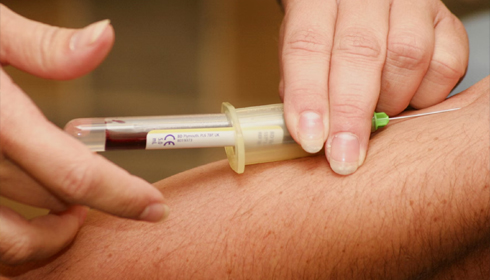
NHRC Takes Cognizance of Wrong Blood Transfusion Case at SMS Hospital
The National Human Rights Commission (NHRC) has taken suo motu cognisance of a troubling occurrence that occurred at JK Lon Hospital, which is part of Sawai Man Singh (SMS) Medical College in Jaipur, Rajasthan. Media sources report that JK Lon Hospital, part of Sawai Man Singh (SMS) Medical College in Jaipur, Rajasthan, transfused a 10-year-old youngster with the wrong blood type twice, on December 5 and December 7, 2024, leaving him in severe condition and requiring respiratory support.
The NHRC expressed profound worry about the occurrence, stating, "The contents of the news report, if true, raise a serious issue of violation of the boy's human rights." Any form of neglect by doctors or medical professionals might result in irreversible loss for patients."
This is not a unique incident in the hospital. A 23-year-old patient died a few months ago as a result of incompetence in blood transfusion at the same government-run clinic. The Commission stated, "Two reported cases of negligence in blood transfusion at the same government-run medical facilities are indeed shocking and cause for concern." These incidents constitute a violation of the patients' right to health and life.
Recognizing the gravity of the situation, the NHRC emphasized the necessity for a comprehensive investigation to identify those responsible and implement measures to prevent similar situations in the future. The Commission said, "The matter requires a thorough probe to identify the persons responsible for such negligence and to ensure such incidents do not recur.
To address the serious matter, the NHRC has served notices on the Chief Secretary and Director General of Police of the Government of Rajasthan, asking for a detailed report within two weeks. This report should include the victim child's current health state, whether a FIR was made in connection with the incident, the steps taken against those guilty for the negligence, and any compensation granted to the child's family.
The NHRC's participation reflects growing concern over healthcare safety standards in government-run hospitals. The Commission's words reflect its commitment to protecting patients' fundamental rights to health and life.
The boy's health has highlighted systematic weaknesses in medical protocols, particularly in sensitive procedures like blood transfusions. The NHRC's proactive approach seeks both accountability and changes to restore public trust in government healthcare facilities.
This incident is likely to revive arguments over medical malpractice, patient rights, and healthcare institutions' accountability. The Commission's notice might pave the way for tougher policies and stricter enforcement of medical practices, preventing similar errors in the future.